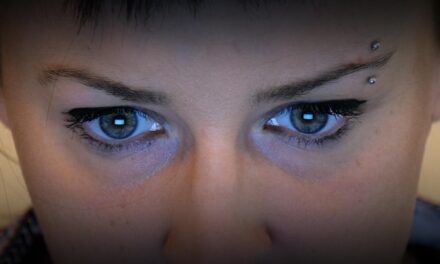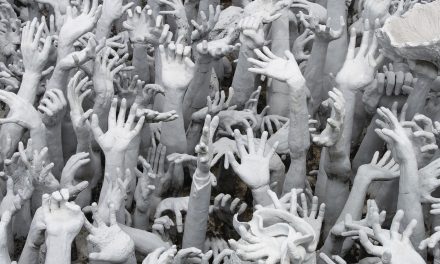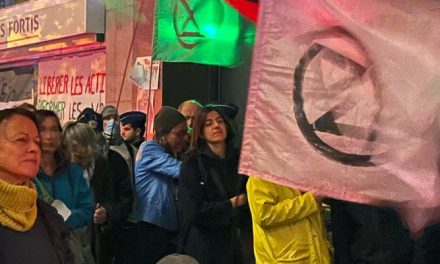Pierre Pevee is standing in the inner courtyard of LaVallee in Brussel´s infamous district Molenbeek smoking a cigarette. Behind him on the wall is a roughly 10-meter-high painting of a local artist surrounded by some uncontrolledly growing ivy. All around him there are people having their lunchbreaks on one of the many sunny benches. “To us it doesn´t matter if someone is man or is women” he tells me, “We want to bring people together, create a network get people to help each other and to inspire each other, you know? Create a real microeconomy. It doesn´t matter who you are”.
Here at LaVallee that is exactly what is happening. In the roughly 3000 square meters large coworking space over 200 different artists, creators and entrepreneurs have found a place to work. Each one of them under different conditions depending on what stage of their careers they are in and what financial means are at their disposal. The focus is solely on their creative work and their situation as a person. Not on their gender.
Unfortunately, this is not the case in all parts of the creative industry. It is in fact rather an exception. In June of this year the European Commission has published the OMC (Open Method of Coordination) report on gender equality in the cultural and creative sectors. In this report they detail the numerous disadvantages and discriminations that women are still facing in the 21st century and are giving recommendations on how to overcome them.
The numbers they are listing are staggering: In Europe women only represent around 20% of all registered songwriters and composers and earn on average 30% less than their male counterparts. In Ireland, in the theatre sector, only 28% of script authors, 9% of sound designers and 37% of directors are women. In the European and the United States visual arts sectors only three to five percent of all permanently displayed artwork in major galleries were made by women.
But the issues stretch even further than that. Women are less likely to be offered a permanent contract, forcing many of them to work as freelancers. Which in turn amplifies the conflict between having a career and having a family. They are also kept out of decision-making positions, face an increasing gender pay gap as they progress in their careers, have less access to public funding and receive less money for their creations. The reasons for this could be as simple as the tendency of men to higher other men, or as complex and unquantifiable as the impact long established gender stereotypes are still having.
But there are some changes being made on a policy making level. The new Creative Europe program, a fund distributed by the European Commission towards Europe’s creative industry, is the first one to have gender equality as one of it´s main objectives. That means that it is actively funding organisations and initiatives that are in some way contributing towards equal representation in their respective fields.
One of these initiatives is Keychange, a Germany, United Kingdom and Sweden based organisation focussing on gender equality in the music sector. They are organising an extensive career development program for women and gender minorities in which they not only help them to progress in their careers with different forms of mentoring but also by organising festivals to put them on the radar, offering them travel opportunities and childcare for participants with a family and providing them with countless networking opportunities.
Especially the latter are invaluable to their careers as Marie Fol, the project leader of Keychange Germany emphasises. She is confident that Keychange has made a significant impact on the graduates of it´s program and has progressed their careers, thereby enabling them to in turn serve as role models for other aspiring artists and professionals.
Another initiative is the Engagement Arts organisation, a peer to peer network that is trying to help victims of sexual harassment in the Belgian creative industry. But even though they have had relative success in their mission according to Anneleen Lemmens, one of the organisation’s coordinators, their relatively small public funding of 60000 euros annually has just been cut by the Flemish government. This shows that while it is a promising sign that initiatives like Keychange and Engagement Arts are now receiving attention from the highest political levels, there is still a long way to go.
Their story serves as a reminder how on how quickly public attention can shift away from an issue that still remains.
The engagement arts initiavtive was founded in 2017 in the wake of the MeToo movement.
Their goal was initially to fight against sexual harassment in the Belgian dance industry.
Of which they found a lot of in the industry itself as well as in art academies.
They soon established weekly meetings and began professionalising their organisation to help more and more people. Now also by approaching organisations.
But even though they started out in the dance industry they rapidly expanded to dealing with people out of all kinds of backgrounds within the arts sector.
And the stories they heard in these were while being individual still of the same nature everywhere.
And mostly they weren´t being listened to by the industry.
Or people were too afraid to tell them in fear that it might harm their careers.
Yet over the past three years at least some of them have been able to speak out and an impact has been made not only through confrontation but through conversation.
A process that is worth continuing and that is taking it´s time to accieve change. And that is hopefully retrieving new attention now…and the funding that comes with that.















